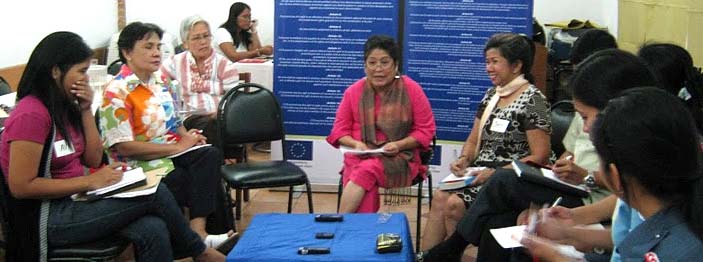
World War II catalyzed events that propelled human rights onto the global stage and into the global conscience. The extermination by Nazi Germany of over six million Jews, Sinti and Romani (gypsies), homosexuals, and persons with disabilities horrified the world. Many decades after, peoples around the world are still struggling to keep such hard-won victories.
Throughout the development of human rights discourses and which included precursor documents such as the Magna Carta (1215), the English Bill of Rights (1689), the French Declaration on the Rights of Man and Citizen (1789), and the US Constitution and Bill of Rights (1791) tended at the policy level to exclude women, people of color, and members of certain social, religious, economic, and political groups. The same documents, however, were used by oppressed people throughout the world to express support to revolutions that assert the right to self-determination.
Since the establishment of the United Nations it has enunciated its primary goal of bolstering international peace and preventing conflict, and as its key human rights principles of “all human beings are born free and equal in dignity and rights.” Yet throughout the world, people continue to be unjustly denied life, freedom, food, shelter, and nationality, among other rights enshrined by the UN.
In the Philippines, the fulfillment of human rights by State actors, and the protection of its citizens from human rights violations, remain a dream. While the struggles against colonialism and national sovereignty have become a touchstone and fulcrum of ongoing struggles, various rights continue to elude the vast majority of the Filipino people.
The right to education is being eroded by the rising costs of education; rights to basic services are in jeopardy with the cuts in social services budget; the right to development is severely marginalized by the rising poverty, unemployment and underemployment; the right to security has been a continuing debacle with the never ending impunity wrought by security forces against protesters, social movements activists, human rights defenders, dissenters and ordinary civilians -- exemplified by the more than a year-old case in what has been called the Ampatuan massacre in Maguindanao and the increasing cases of violence against women and children.
Corruption has to be stamped out as promised by the PNoy administration.
Land reform, the basis of historical rebellions continue to languish in the rhetorics as the peasant and workers populations bear the burden of unjust market forces and undemocratic, anti-people policies and the unabashed conversion of agricultural lands to housing estates and commercial ventures; the human-made and natural disasters that continue to deepen the poverty of a vast majority of the people; among others. These are only some of the key development and security issues confronting this nation. All this within the context of a neoliberal ethos of economic policies and the globalization of products, markets, natural resources, peoples’ movements and violence. Crimes against peace, against humanity, against women, children, the elderly and the civilians’ dot the landscapes of many countries, many of them touted as democratic societies.
Alongside the commemoration of the 60th year of the Declaration of Human Rights is the celebration of the 16th Days of Activism Against Violence Against Women. This year, we mark the 11th anniversary of the UN’s formal recognition of November 25th as International Day for the Elimination of Violence Against Women.
Our ongoing program called “Private and Public Faces of Violence Against Women: Addressing Domestic Violence and Trafficking in the Urban Poor Communities and Entertainment Centers of Angeles City and Olongapo City” (The Red AVP) is funded by the European Union. It is a constellation of various activities that seek to promote and protect the rights of women and youth in the selected project sites.
As WeDpro enters its 12th year of establishment, it recommits itself as an organization of volunteers and professionals, of advocates and activists to promoting the rights of marginalized and discriminated communities and populations. As a key women’s non-governmental organization that not only saw but participated in the ebb and flow of the Philippine women’s liberation movement and other movements, WeDpro pledges itself — even in the face of vanishing and highly-competed for resources, human and otherwise — as a key player in protection, promotion and struggle for a gender-fair, just, humane and peaceful Philippines and the nations of the world.
 Reference:
Reference:
 Home | Aims and Objectives of Solidarity Philippines Australia Network | About Kasama
Home | Aims and Objectives of Solidarity Philippines Australia Network | About Kasama 
Search the SPAN Web